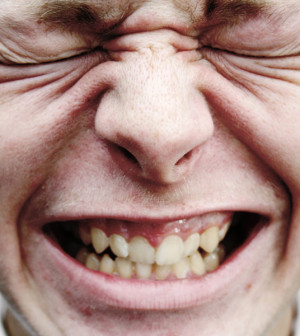- Could Artificial Sweeteners Be Aging the Brain Faster?
- Techniques for Soothing Your Nervous System
- Does the Water in Your House Smell Funny? Here’s Why
- Can a Daily Dose of Apple Cider Vinegar Actually Aid Weight Loss?
- 6 Health Beverages That Can Actually Spike Your Blood Sugar
- Treatment Options for Social Anxiety Disorder
- Understanding the Connection Between Anxiety and Depression
- How Daily Prunes Can Influence Cholesterol and Inflammation
- When to Take B12 for Better Absorption and Energy
- Epsom Salts: Health Benefits and Uses
Belief in Acupuncture Key to Effect on Back Pain, Study Suggests


Acupuncture for back pain is more likely to help people who believe the treatment will work, new research suggests.
The study included 485 people who received acupuncture for back pain and completed questionnaires before they began treatment, at two and three months into treatment, and then again at six months after treatment.
Patients who had low expectations of acupuncture before they began the therapy gained less benefit than those who believed it would work, according to the researchers at the University of Southampton in England.
The investigators also found that patients who had a positive view of their back pain and felt in control of their condition had less back-related disability while undergoing acupuncture.
The findings, published in the March issue of the Clinical Journal of Pain, showed that “psychological factors were consistently associated with back-related disability,” study author Dr. Felicity Bishop said in a university news release.
“When individual patients came to see their back pain more positively, they went on to experience less back-related disability,” Bishop said.
“In particular,” she explained, “they experienced less disability over the course of treatment when they came to see their back pain as more controllable, when they felt they had better understanding of their back pain, when they felt better able to cope with it, were less emotional about it, and when they felt their back pain was going to have less of an impact on their lives.”
One arthritis doctor said the study findings illustrate an important point.
“This study emphasizes the influence of the placebo effect on pain. The process whereby the brain’s processing of different emotions in relation to their treatment can influence outcome is a really important area for research,” Dr. Stephen Simpson, director of research at Arthritis Research UK, said in the news release.
Arthritis Research UK funded the study.
More information
The U.S. National Institute of Arthritis and Musculoskeletal and Skin Diseases has more about back pain.
Source: HealthDay
Copyright © 2026 HealthDay. All rights reserved.










